DegustatoR
Legend
I think it does so only in the presence of Windows Hello compatible h/w like a fingerprint scanner.it did not default to bitlocker on
Follow along with the video below to see how to install our site as a web app on your home screen.
Note: This feature may not be available in some browsers.
I think it does so only in the presence of Windows Hello compatible h/w like a fingerprint scanner.it did not default to bitlocker on
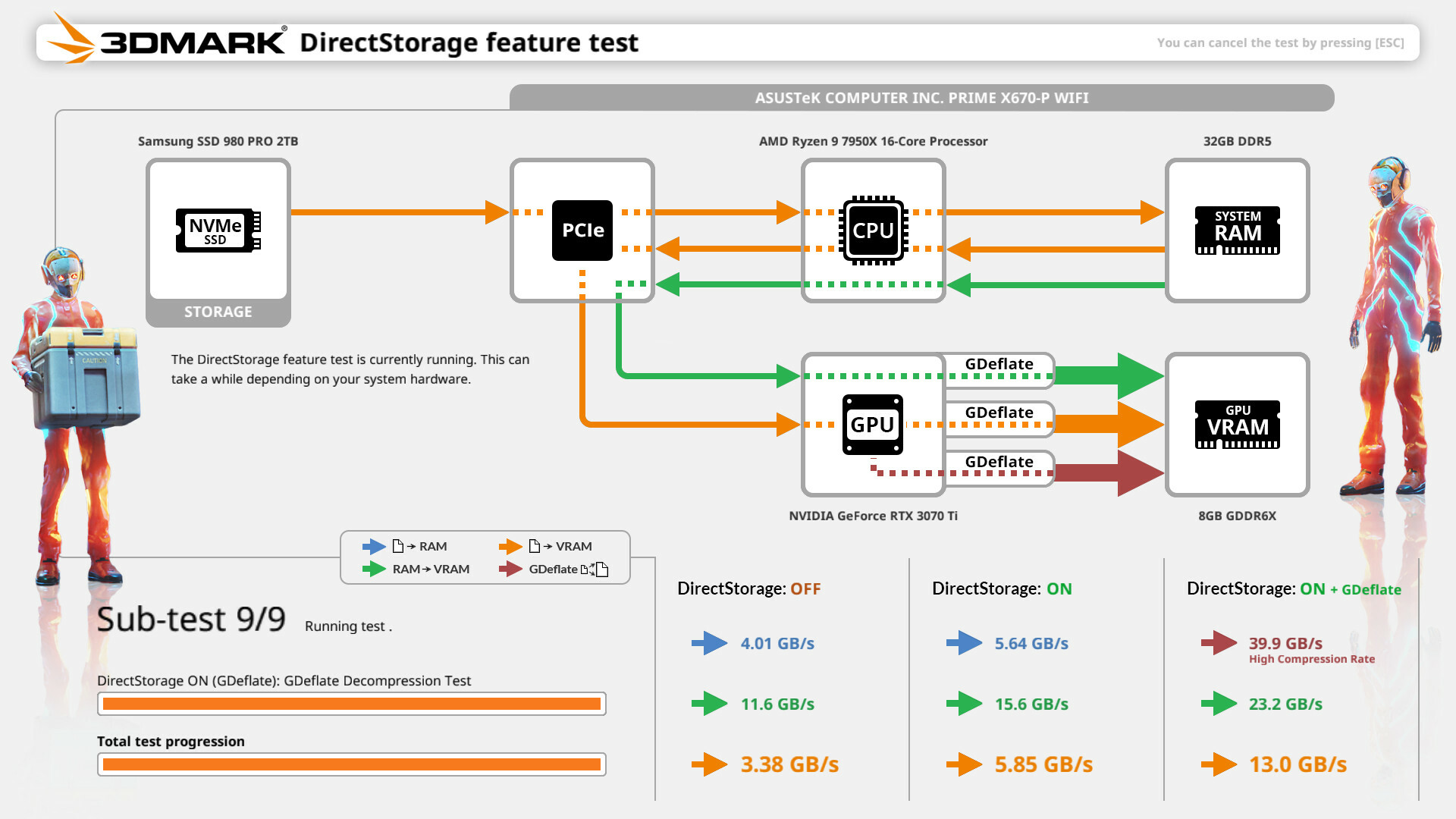
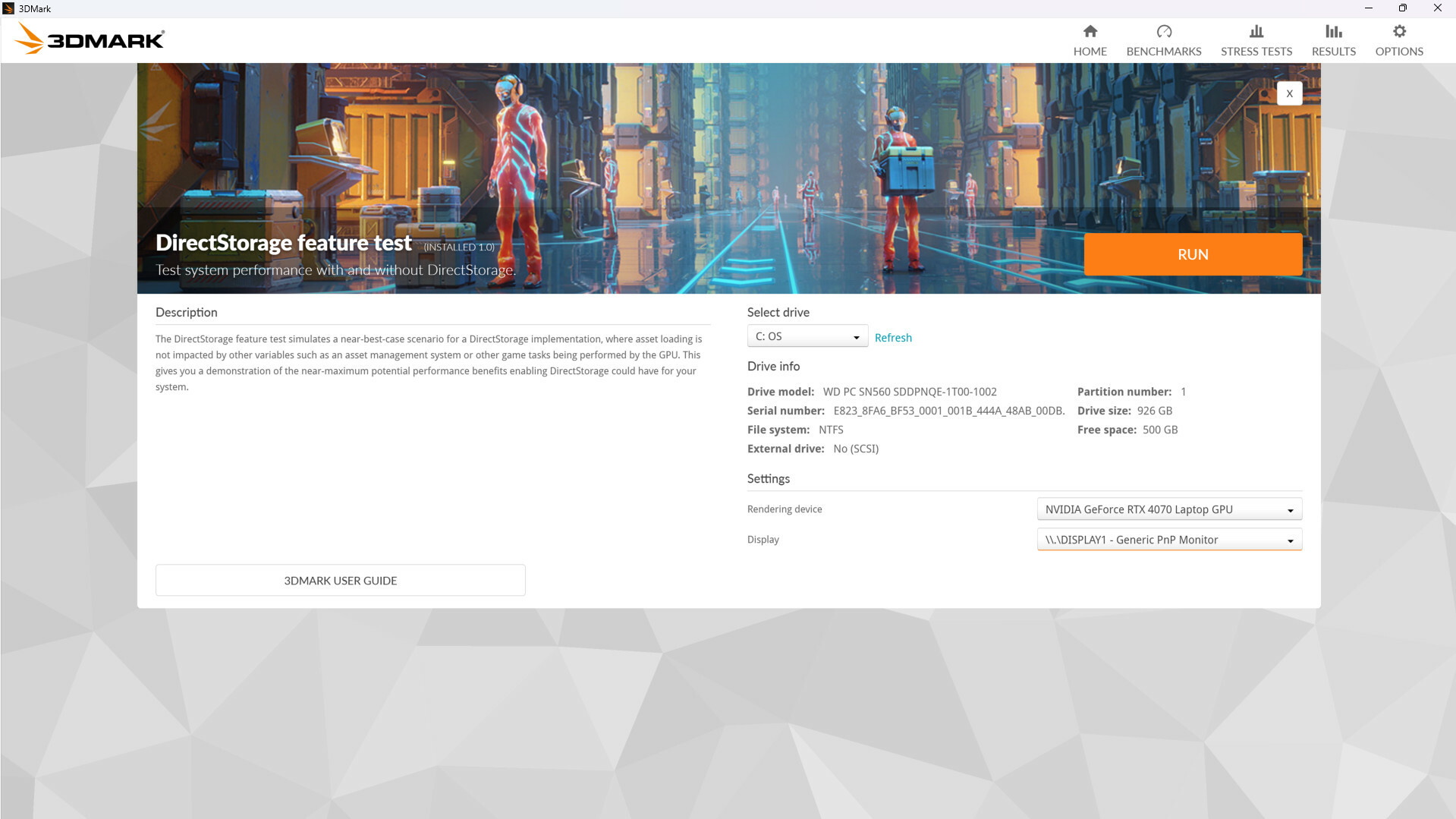

The 3DMark DirectStorage feature test helps gamers understand the potential performance benefits that Microsoft’s DirectStorage technology could have for their PC’s gaming performance.
Samsung 980proIt would be interesting to know the top read speed of the SSD in each case too.

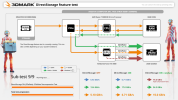
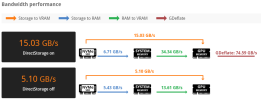

Small packed file becomes bigger uncompressed file?Is this supposed to represent a file
View attachment 12519
If so why is it View attachment 12520 and not GDeflate to vram ?
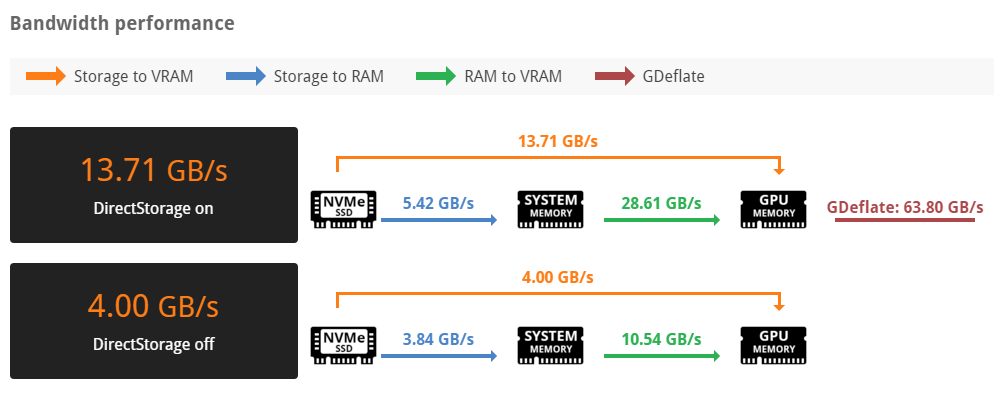
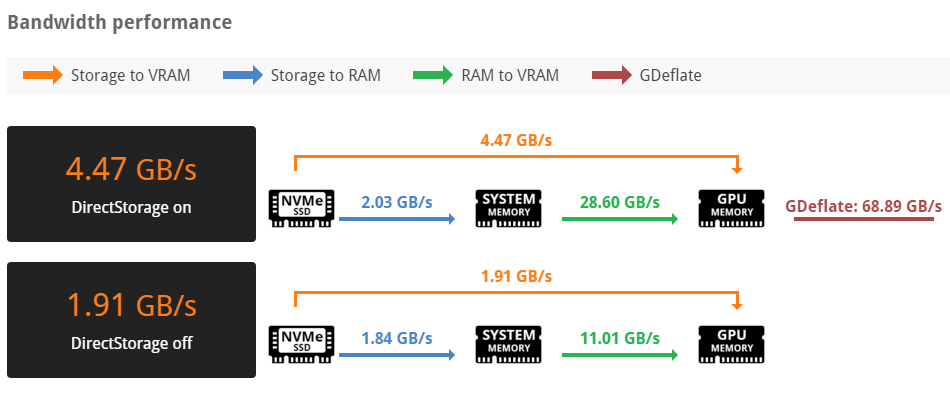
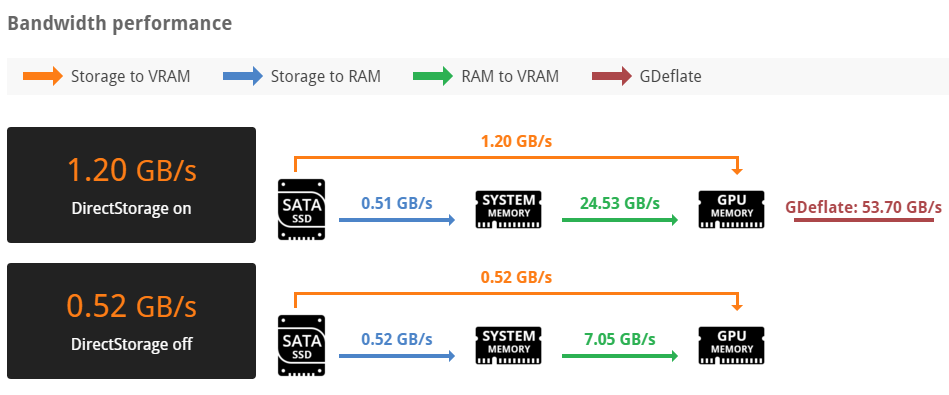
Huh? It's always supported SSDs, HDD support wasn't added until 1.2Does DirectStorage support SSD's now?
It did not the first time I checked ("ACHI.sys not supported" I think the message was)
Does DirectStorage support SSD's now?
It did not the first time I checked ("ACHI.sys not supported" I think the message was)
I think he means SATA. Last I checked it does support SATA SSDs and even HDDs.Huh? It's always supported SSDs, HDD support wasn't added until 1.2
BypassIO is just one part of DS. In fact 3DMark says that it's disabled for me on all drives, NVMe including. Probably because of my AV.It tells me that my 2 NVME's are supported, but my 4 x SDD's are not?
